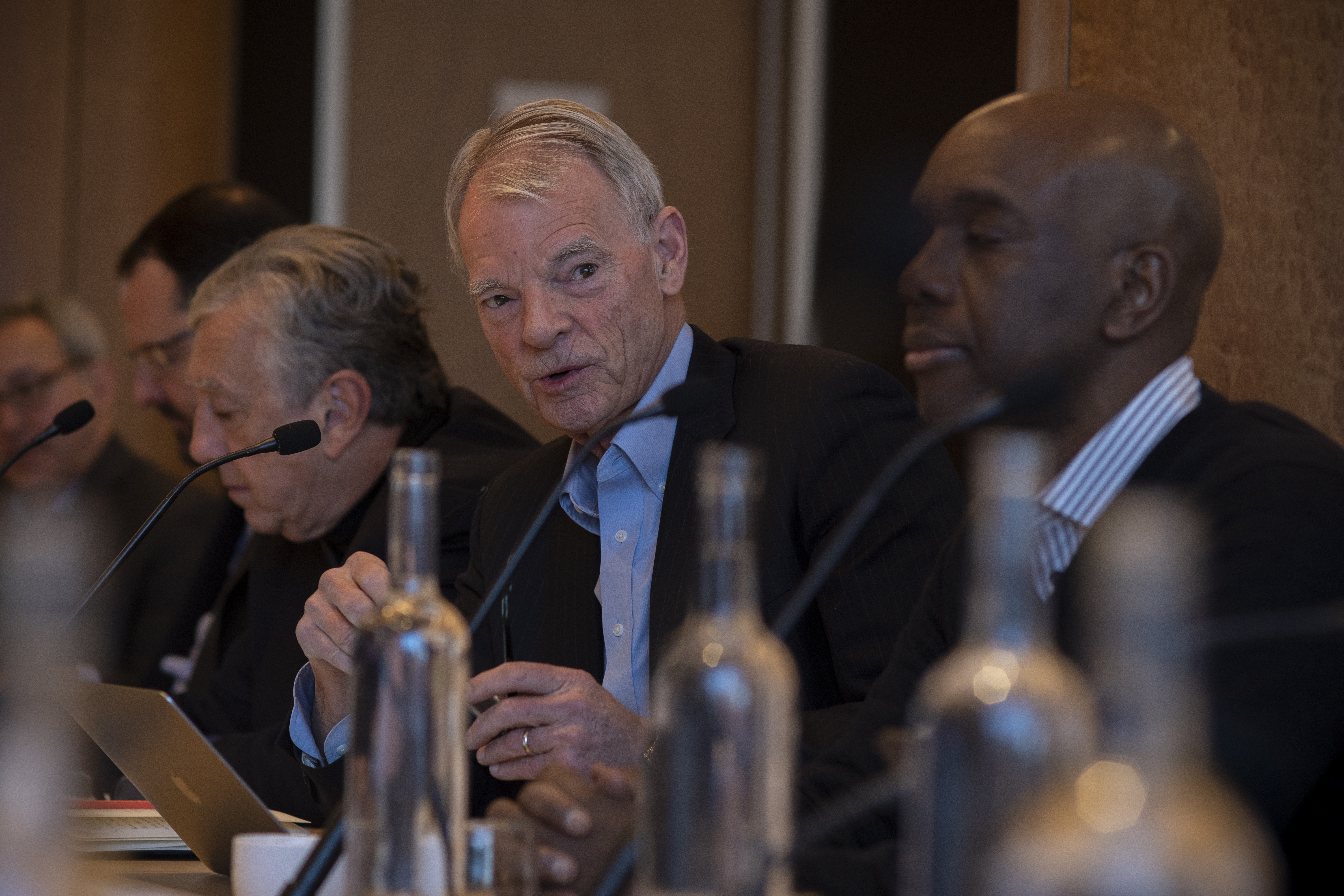Last week, INET’s Commission on Global Economic Transformation met in San Francisco to discuss some of the most pressing issues facing the global economy and communities around the world: technological change, artificial intelligence, automation, and the changing nature of employment. Commission co-chair and Nobel laureate Michael Spence, Commissioners Nelson Barbosa, Peter Bofinger, James Manyika, and INET President Rob Johnson led a conversation with leading thinkers from business, academia, community groups and labor.
“The transformation of economies and societies to operating on digital foundations, while still possibly in the early stages, has created profound change, major opportunities, and deeper challenges that previously anticipated,” said Spence. “The Commission is hearing from the architects of digital transformation, and the Bay Area remains the epicenter of this transformation. We are working to understand the forces and trends at play—and deliberating on what policies are needed to mitigate risks, avoid adverse outcomes, and achieve broad-based benefits.”
Key topics and ideas discussed included:
- The relentless focus on growth in today’s economy is facing a harsh reality in the age of technology, where social costs are high and productive activities cannot be measured with traditional metrics such as GDP.
- What does work mean in the age of technology, and can we reimagine our economic prospects? We may still have enough jobs tomorrow, but the nature of those jobs depends on our collective choices, not current trends in technology.
- The group agreed that technology has increasingly become the backbone of our economy, yet their collective energy was focused on the political and societal implications. Technologists and economists alike pointed to social choice, civic leadership, and system-wide redesign as primary solutions to technological disruption.
- Individual data is an asset, but how do we measure its value and who controls it? Some argued for profit sharing schemes, others argued for a new “digital citizenship” or social insurance system.
- Technology concentrates power for some markets, but not all. But is today’s technology that much different from the era of railroads and robber barons? Monopoly and duopoly power have always been present and are not a product of recent technology. The question is: Where is the civic leadership for anti-trust enforcement?
- “Moonshots” or large-scale reform efforts cannot happen in a laboratory —we need to work with existing civic, political, and international institutions in the real economy today.
The lively discussion is a critical component of the Commission’s work on issues of tech and automation—an area in which we will be continue to post updates on the Commission’s webpage. Stay tuned!


